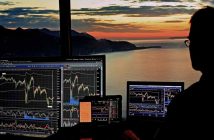Forex, or the foreign exchange market, is where currencies are traded constantly and with significant volatility. Foreign exchange, or forex, trading, is done by investors to capitalise on price changes in currency pairs. But to be a great trader, you must know how the latest economic news will affect the market. For this reason, a forex trader’s economic calendar is an essential resource.
Learn the value of an economic calendar and how to incorporate it into your trading strategy in this article.
What is Economic Calendar?
An economic calendar is helpful for those interested in the potential impact of upcoming government reports, central bank pronouncements, and other financial data on the foreign exchange market. Inflation and GDP figures, as well as other economic indicators and policy announcements, fall under this category. Foreign exchange (Forex) market participants use the economic calendar to plan for and react to potential market shifts.
Moreover, if you have a right trading mindset, Economic Calendar is the right tool for you.
Benefits of an Economic Calendar:
- Awareness of Market Impact: Consciousness of Market Effects Recognize that fluctuations in the value of a currency might result from economic events. Traders may use an economic calendar to anticipate market movements and prepare for transactions before potentially significant events.
- Risk Management: Economic events may cause significant price swings and increased market volatility; thus, precautions must be taken. Traders may better manage risk by anticipating potential outcomes thanks to an economic calendar. In times of high volatility, investors can reduce their exposure, place stop-loss orders, or stay out of the market.
How to use an economic calendar in Forex trading?
Here’s a step-by-step guide on how to use an economic calendar in forex trading:
- Select a Reliable Economic Calendar: The Forex Factory, Investing.com, and DailyFX economic calendars are just a few examples of trustworthy trading online resources for this purpose. Pick a resource that can satisfy your need for both precision and timeliness.
- Filter Events: The economic calendar has filter options that may be used to display just the information that is most relevant to you. Filtering options include location, currency, event category, and severity. It lets you eliminate the news that matters to your trading plan.
- Compare Actual Results to Predicted Results: Expected and historical values for each economic indicator are available in economic calendars. The market consensus projections make up the “expected” numbers, while the “previous” numbers represent the actual outcomes of the last release. The market’s expectations and possible responses might be gauged by comparing the predicted and fundamental data.
- Monitor the Release Time: financial announcements have regular, predictable schedules. You may adapt the release timings to your local time zone if necessary. It’s critical to be on hand and ready to respond to market fluctuations at these times.
- Plan Your Trading Strategy: You may make a trading plan using the data from the economic calendar. Consider purchasing the relevant currency pair in advance, for instance, if you believe a high-impact event will have a favourable outcome. If you anticipate an unfavourable conclusion, however, you may decide to sell or refrain from trading at that moment.
- Monitor Market Reaction: Monitor the market’s response once a major economic announcement has been made. Evaluate if the outcome meets, surpasses, or falls short of market expectations by comparing it to the anticipated value and the last number. Examine the volatility and price changes to see whether they fit your trading plan.
- Adjust Your Trading Plan: You may need to adjust your trading strategy based on how the market reacts to the economic news. Assess the accuracy of your original expectations, and adapt your trading approach accordingly.
- Stay Informed: Keep up-to-date with the ever-changing economic landscape using an economic calendar. To succeed in the foreign exchange market, keeping up with the newest news and financial events by reviewing the economic calendar is essential.
Conclusion:
Forex traders must constantly monitor economic news to succeed. Traders rely heavily on economic calendars because they provide crucial data and insights into future market moves. Traders may improve their chances of success in the ever-changing forex market by keeping a close eye on key economic events with the help of an economic calendar. Make the most of this helpful tool by sharpening your knowledge and techniques.




